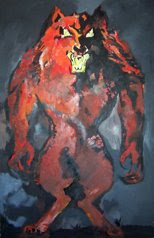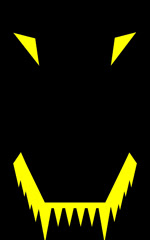"From Wikipedia, the free encyclopedia
"Satirical literature can commonly be categorized as either Horatian or Juvenalian.
"Horatian
Named for the Roman satirist, Horace, this playfully criticizes some social vice through gentle, mild, and light-hearted humour. It directs wit, exaggeration, and self-deprecating humour toward what it identifies as folly, rather than evil. Horatian satire's sympathetic tone is common in modern society. Examples of Horatian satire: Jonathan Swift's Gulliver’s Travels, Daniel Defoe's 'The True-Born Englishman', Alexander Pope's The Rape of the Lock, C.S. Lewis' The Screwtape Letters, The Onion, Matt Groening's The Simpsons and the Ig Nobel Prizes.
"Juvenalian
Named after the Roman satirist Juvenal, this type of satire is more contemptuous and abrasive than the Horatian. Juvenalian satire addresses social evil through scorn, outrage, and savage ridicule. This form is often pessimistic, characterized by irony, sarcasm, moral indignation and personal invective, with less emphasis on humour. Examples of Juvenalian satire: Joseph Hall's Virgidemiarum, Jonathan Swift's A Modest Proposal, Samuel Johnson's London, George Orwell's Nineteen Eighty-Four and Animal Farm, Bret Easton Ellis's American Psycho, Ray Bradbury’s Fahrenheit 451, William Golding's Lord of the Flies, Aldous Huxley's Brave New World, Anthony Burgess' A Clockwork Orange, Joseph Heller's Catch-22, William Burroughs' Naked Lunch, Stephen Colbert's performance at the 2006 White House Correspondents Dinner, anarcho-punk band Crass, and the cartoon South Park."
Tuesday, November 23, 2010
Subscribe to:
Post Comments (Atom)





No comments:
Post a Comment